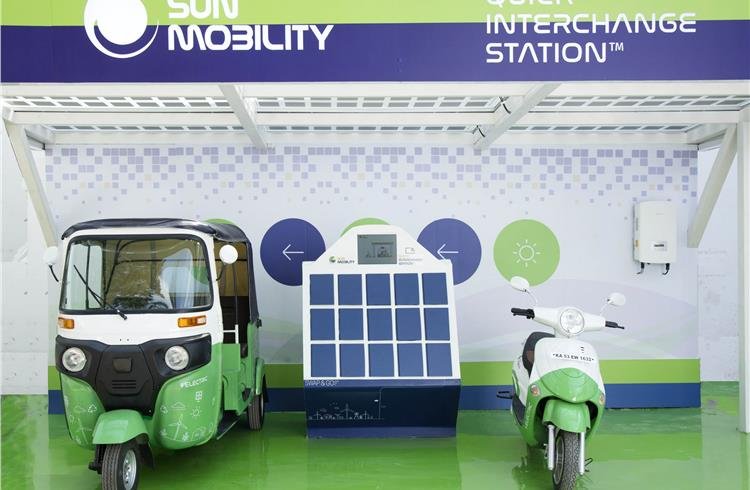SUN Mobility has announced the launch of its revolutionary modular battery-swapping technology for Heavy Electric Vehicles (HEVs), marking a significant advancement in the electric mobility sector. This innovation was showcased in collaboration with Bangalore-based Veera Vahana at the Prawaas 4.0 event, unveiling India’s first 10.5-metre battery-swappable buses designed for intercity and rural routes.
The introduction of this technology aims to address several key challenges faced by fleet operators, including high initial costs and extended downtime. The modular battery-swapping system promises to reduce the upfront cost of electric buses by up to 40%, bringing it in line with traditional internal combustion engine (ICE) buses. This reduction is expected to ease the financial burden on fleet owners and make the transition to electric vehicles more feasible. The technology also enhances operational efficiency by cutting downtime to under three minutes per swap, thereby boosting vehicle utilisation. Additionally, the compact and lightweight design of the batteries allows for greater payload capacities, making this solution highly practical for heavy-duty applications.
With commercial vehicles contributing approximately 50% of tailpipe emissions despite constituting just 5% of the vehicle population, SUN Mobility’s new system has the potential to significantly impact India’s carbon reduction goals. The company’s co-founder, Chetan Maini, highlighted that this innovation could transform the commercial vehicle sector and accelerate electrification efforts. Furthermore, SUN Mobility’s recent joint venture with IndianOil is set to enhance the accessibility of battery-swapping stations, integrating them into a network of over 37,000 fuel stations. This development is poised to position India as a leader in transportation electrification and unlock substantial opportunities for OEMs, fleet operators, and investors in the electric mobility space.


